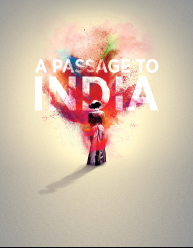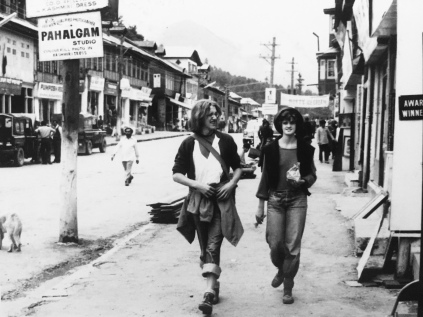 One of the great novels of the 20th century, A Passage To India will be brought to life on stage in a new adaptation by award-winning ensemble simple8 at Salisbury Playhouse from 22 to 27 January 2018. Taking EM Forster’s novel and re-imagining it for contemporary Britain, this new stage production will conjure up Imperial India, the elephants and caves, courthouses and temples with the simplest and boldest of means.
One of the great novels of the 20th century, A Passage To India will be brought to life on stage in a new adaptation by award-winning ensemble simple8 at Salisbury Playhouse from 22 to 27 January 2018. Taking EM Forster’s novel and re-imagining it for contemporary Britain, this new stage production will conjure up Imperial India, the elephants and caves, courthouses and temples with the simplest and boldest of means.
A Passage To India is adapted and co-directed by Simon Dormandy, whose recent directing work includes co-directing his own adaptation of Coen Brothers’ film The Hudsucker Proxy at Liverpool Playhouse, and directing Julius Caesar at Bristol Old Vic. Simon was also Director of Drama at Eton College for 15 years, where his students included Eddie Redmayne and Tom Hiddleston, as well as the co-director of A Passage to India Sebastian Armesto.
Do you think A Passage to India is still relevant today, over 90 years after it was written?
“Absolutely. The question which drives the story – how can we love one another in a world divided by culture and belief – is every bit as urgent in Britain today as it was when Forster first framed it. The world may have become a smaller place in the last hundred years, but it is no less divided than the India of Forster’s novel. A Passage to India is a story for our times.”
When approaching this adaptation, did you have a certain idea of what the British Raj must have been like?
“My father spent his pre-school years in British India, and I was brought up to believe that, however much we might question colonialism as a policy, the behaviour of the British themselves was generally benign. And the essential decency of the British was something I found very hard to unthink, partly out of love for my family, partly from the romantic way the Raj is generally presented in fiction and film, and partly from direct experience of India, where I spent nine months backpacking in the Seventies.
“So when, at the end of my gap-year, I finally got around to reading A Passage to India, I was devastated. Its portrait of the Anglo-Indians (as Forster calls the colonial British, using the meaning current at the time) was utterly convincing and absolutely damning, not because they are individually malicious, but because the structure and ultimate purpose of colonialism forces them as a group, regardless of their personal qualities, to deny the common humanity they share with the Indians so that, when there is a crisis, they behave atrociously.”

Simon Dormandy (left) backpacking in India in the 1970s
What can audiences expect from this production?
“They can expect a simple, moving story about people overcoming terrible obstacles in search of love. They can expect scenes and characters of exquisite delicacy – Forster’s dialogue matches the very best ever written for a stage. They can expect thrilling and dynamic sequences of action and imagination – the conjuring of beautiful settings and terrifying experiences from the simplest of ingredients. And they can expect comedy, tragedy and rich humanity at every turn.
We have chosen a minimalist design style, using appropriate costumes on a simple set, but dispensing with accessories, props and scene-dressing in order to focus on character and relationships, not period and milieu. By inviting the audience to flesh out our hints with their imaginations in this way, we hope to draw them deeper into the drama, implicating them in something that might all too easily feel like a tale of long ago and far away.”
A Passage to India runs at Salisbury Playhouse from Monday 22 to Saturday 27 January. For more information and tickets, visit http://www.salisburyplayhouse.com or call 01722 320333.
Advertisements Share this:





